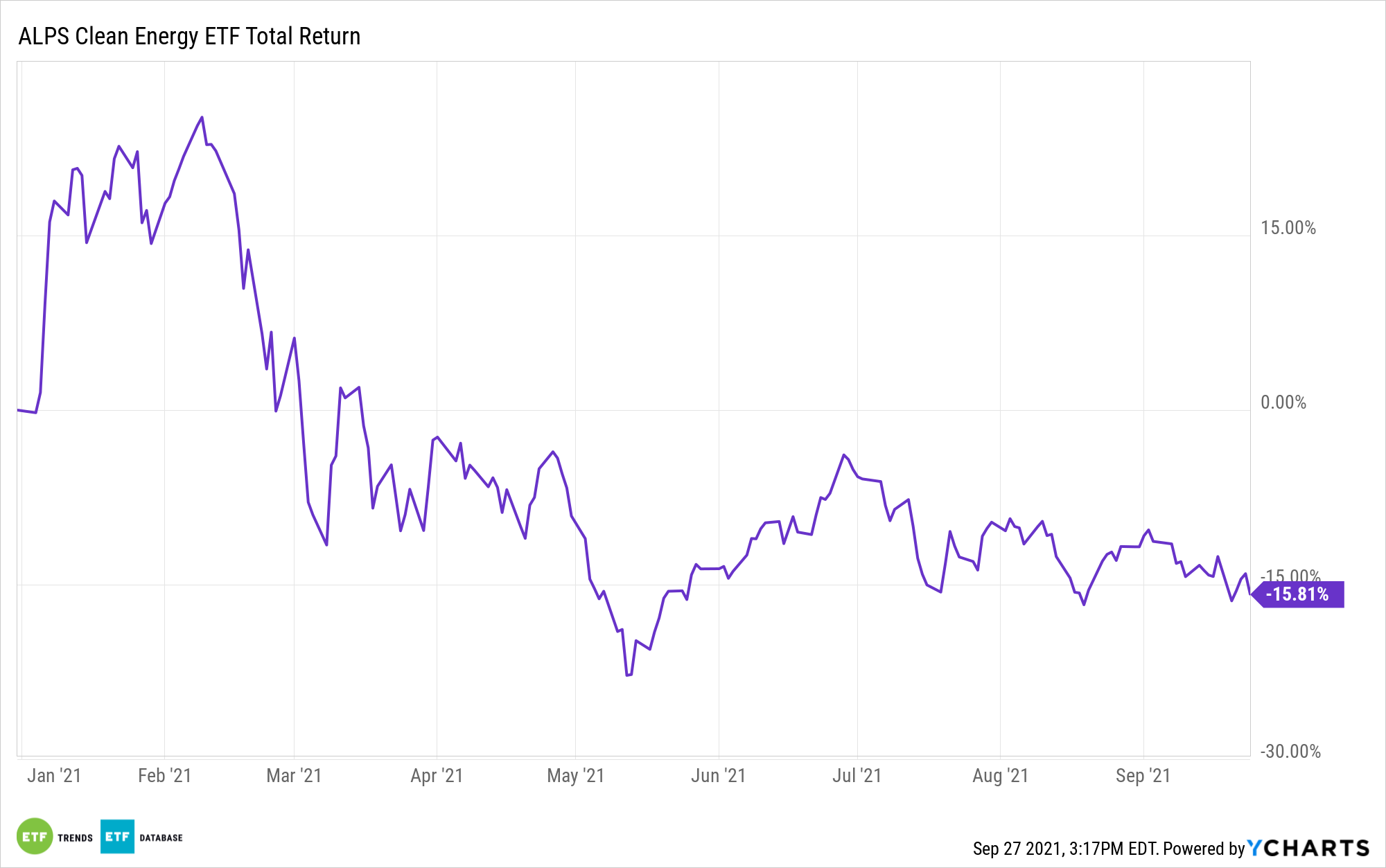Climate-driven agendas are increasingly common for institutional investors, including endowments and pension plans. In fact, these investors aren’t just talking the climate-aware talk. They’re walking the proverbial walk.
A substantial part of that action includes providing financial resources for climate-related projects, and elevated funding for clean projects could stir renewed interest in exchange traded funds such as the ALPS Clean Energy ETF (ACES).
“Investors and financiers determine which clean-energy companies and projects receive capital through where they choose to invest money and provide resources,” reports Business Insider. “They also evaluate and determine risk, known as underwriting. The divestment movement actively encourages financial-services companies to sell their fossil-fuel assets while bringing attention to how they fund and insure industries that produce most of the world’s carbon emissions.”
Over the past several years, an increasing number of endowments and pension plans have either liquidated investments in fossil fuels or made pledges to do so. There are potential benefits in that scenario for renewable energy ETFs such as ACES.

First, as major investors move away from fossil fuels equities, smaller investors could be compelled to follow suit, potentially stoking flows to funds like ACES. Second, with institutional investors freeing up capital from fossil fuel divestments, they could also free up capital to direct to renewable energy financing and projects.
Adding to the long-term potential for ACES is the sheer array of industries that need to make investments in clean energy that can benefit their own businesses. Those changes could drive investments in services and technologies provided by ACES components.
“That means transformation of manufacturing, automakers, steel, cement, across agriculture, transport, utilities, the way we get around, the way we make things, the things we eat, the way we connect with each other,” said Anne Simpson, managing investment director for CalPERS’ board governance and sustainability, in an interview with Business Insider.
ACES is ideally positioned to capitalize on rising climate-aware investing because of its breadth. Unlike some renewable energy ETFs that focus on a single concept or overweight one or two industries, ACES provides exposure to seven industries, spanning an array of concepts while providing investors with a multiple-bases-covered approach. ACES’ top 10 holdings combine for about 48% of the fund’s weight.
Other renewable energy ETFs include the First Trust Global Wind Energy ETF (FAN) and the SPDR Kensho Clean Power ETF (CNRG).
For more news, information, and strategy, visit our ETF Building Blocks Channel.
The opinions and forecasts expressed herein are solely those of Tom Lydon, and may not actually come to pass. Information on this site should not be used or construed as an offer to sell, a solicitation of an offer to buy, or a recommendation for any product.








